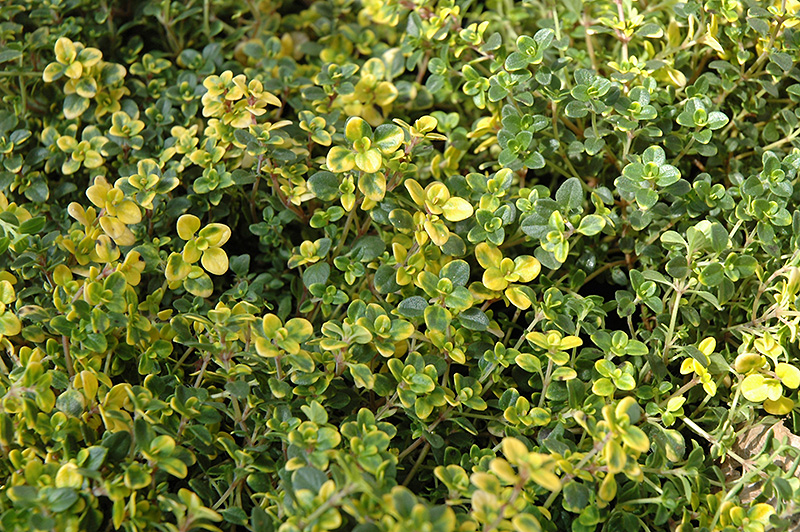Plant Height: 4 inches Flower Height: 6 inches Spacing: 15 inches
Sunlight:
Hardiness Zone: 4 Other Names: Creeping Thyme Description: A fine groundcover great for rock gardens, forms a dense low mat which is completely covered in lilac-pink flowers throughout summer; attractive variegated foliage; needs a dry and sunny location, will take light foot traffic Ornamental Features Doone Valley Thyme is smothered in stunning spikes of lilac purple flowers rising above the foliage from early to mid summer. Its attractive tiny fragrant round leaves are dark green in color with showy yellow variegation. The foliage often turns gold in fall. Landscape Attributes Doone Valley Thyme is a dense herbaceous evergreen perennial with a ground-hugging habit of growth. It brings an extremely fine and delicate texture to the garden composition and should be used to full effect. This plant will require occasional maintenance and upkeep, and is best cleaned up in early spring before it resumes active growth for the season. Deer don't particularly care for this plant and will usually leave it alone in favor of tastier treats. Gardeners should be aware of the following characteristic(s) that may warrant special consideration; Doone Valley Thyme is recommended for the following landscape applications; Planting & Growing Doone Valley Thyme will grow to be only 4 inches tall at maturity extending to 6 inches tall with the flowers, with a spread of 18 inches. When grown in masses or used as a bedding plant, individual plants should be spaced approximately 15 inches apart. Its foliage tends to remain low and dense right to the ground. It grows at a fast rate, and under ideal conditions can be expected to live for approximately 10 years. As an evegreen perennial, this plant will typically keep its form and foliage year-round. This plant should only be grown in full sunlight. It prefers to grow in average to dry locations, and dislikes excessive moisture. It is considered to be drought-tolerant, and thus makes an ideal choice for a low-water garden or xeriscape application. It is not particular as to soil type or pH. It is highly tolerant of urban pollution and will even thrive in inner city environments. Consider covering it with a thick layer of mulch in winter to protect it in exposed locations or colder microclimates. This particular variety is an interspecific hybrid. It can be propagated by division; however, as a cultivated variety, be aware that it may be subject to certain restrictions or prohibitions on propagation.![]()
![]()
![]()
![]()
![]()
![]()
![]()
![]()
![]()
![]()
![]()
![]()
Plant Finder
Characteristics
Applications
Features & Attributes


